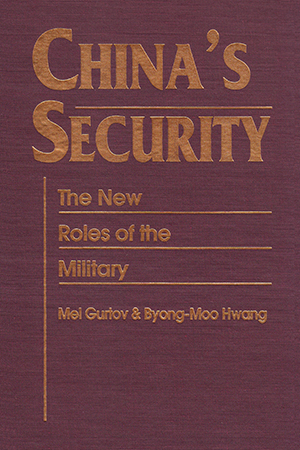This fresh appraisal of China’s military establishment in transition emphasizes the interplay of domestic and external forces.
Showing how economic, technological, bureaucratic, and international factors have substantially reshaped Chinese military thinking and behavior, the authors question the popular perception of a “China threat.” Their closely reasoned analysis underscores the implications of China’s rise for its military forces and its security and foreign policies.
Mel Gurtov is professor of political science and international studies at Portland State University. He is author of Global Politics in the Human Interest and Roots of Failure: U.S. Policy in the Third World (with Ray Maghroori). Byong-Moo Hwang is professor of strategic studies at the Korea National Defense University in Seoul and past president of the Korean Association of International Studies. Previously, he collaborated with Mel Gurtov on China Under Threat: The Politics of Strategy and Diplomacy.
"In the current mood of uncertainty and overblown threat-mongering about China, this volume is a welcome tonic.... In addition, the authors have dug into an impressive collection of Chinese language sources which join a solid list of English works in one of the most comprehensive bibliographies to appear on this subject."—Bates Gill, Contemporary Security Policy
"A sophisticated and informative disucssion of the Chinese military."—Foreign Affairs
"The authors present a cogent appraisal of the defense establishment of the People's Republic of China in the early post-Deng era."—Choice






